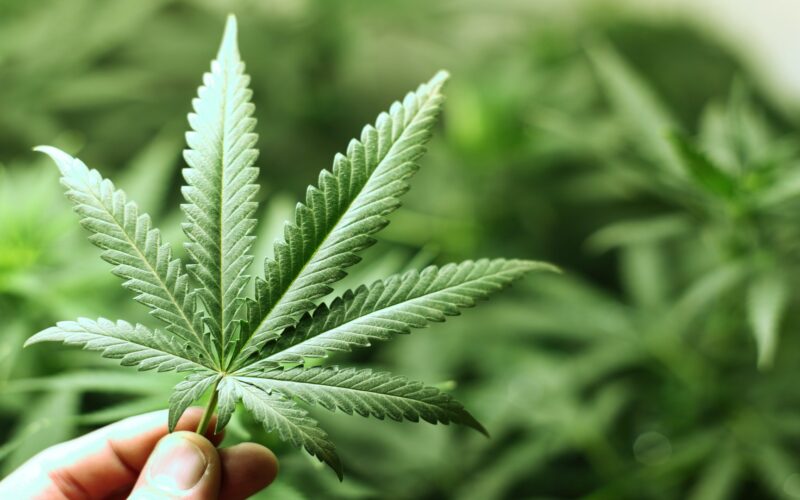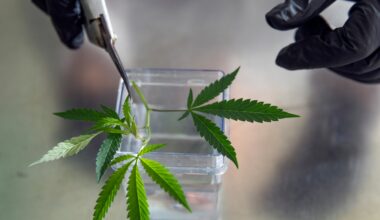When it comes to the topic of cannabis, popularly called “weed” or marijuana, we’ve all had our fair share of curiosity. The question “how long does marijuana stay in your body and what are its lasting effects on your body” is a pretty common one. There is no precise answer to the question. Accordingly, several factors influence marijuana’s duration of stay in the body, varying from one individual to another.
However, you’ll be getting a juicy breakdown of the psychoactive effects of cannabis. After reading this guide, you’ll sure be knowledgeable of how long marijuana stays in your body. Cornerstone content we’ll be reviewing include the major factors controlling the stay time of marijuana in your body as well as the detection time after the last use. Additionally, we will be spilling the tea on how long it takes to pass a drug test successfully.
How Long Do The Psychoactive Effects Last?
When we consume weed, whether by vaping, using a dab rig, smoking from a cute bong, or even ingesting, there’s a specific stimulant effect with several short and long-term results. These include mild to extreme euphoria and reduced stress, heightened sensuality and creativity, paranoia, and anxiety, in some cases.
However, in higher THC doses, these high effects can be more severe and even dangerous. Smoking above your tolerance level can bring hallucinations, depersonalization, temporary impairment of cognitive function, aggressiveness, ataxia, and even acute psychosis.
These feelings of “high” are referred to as psychoactive effects. These effects are actually produced by the chemical compounds present in the cannabis plant, otherwise known as cannabinoids. The most popular and active cannabinoids, delta-9-tetrahydrocannabinol or THC, can last several days or even several weeks within our bloodstream.
Generally, the short-term effects last less than six hours, while the long-term ones can last several days from last use. Furthermore, these effects tend to manifest about half to two hours slower if you ingest weed compared to when you smoke it. The results from consuming cannabis also vary among individuals, depending on one’s tolerance and reaction to weed, the cannabis strain and potency, as well as dosage.
How Long Does Marijuana Stay In Your Body?
Ending a long workday with a nice pre-roll is always one of the best ways to decompress. Yet, employers are still weighing in on cannabis consumption by administering drug tests, random or before official onboarding. In this case, it is resourceful to learn how long does marijuana stay in your body, according to respective drug tests: urine, blood, saliva, and hair follicle.
Urine Testing
A urine drug test is a commonly performed standard test for weed-use detection. Generally, it is almost impossible for a urinalysis to detect weed in your pee after thirty days since last use. Even with a stern cut-off concentration point of 20 ng/mL (nanograms per milliliter), as an occasional weed user, any urine tests conducted after three days since last use are likely to come back clean.
If you’re a moderate cannabis consumer, this duration might be slightly longer for you; let’s say, one week tops. However, if you consume weed daily and a urine drug test is conducted after at least fifteen days since your last use, it will likely come back clean.
Meanwhile, if you are an everyday user or smoke weed several times a day, the detection time for THC is longer. If you must pass a drug test successfully, professionals recommend waiting for at least one month and up to 90 days before undergoing a urine drug test.
Blood Testing
Active THC metabolites enter the human bloodstream in seconds once you inhale or consume the substance. Furthermore, THC levels are highest in blood plasma between three and eight minutes after being inhaled. THC toxins can remain in plasma for as long as five hours, with a thirty-minute half-life.
When ingested, however, it takes a few hours longer to make its way into your bloodstream. No matter the method of consumption, the THC metabolite is not quickly expelled from the body and can stay for up to a month after last use.
Saliva Testing
Aside from your urine and blood, traces of weed can also be detected in your saliva using a mouth swab. Say you ingest or smoke it, or even just hang around friends who are lighting up-you can still test positive for weed.
If your cannabis consumption is occasional, then it is detectable in your salve for about three days since your last session. However, suppose you smoke or ingest weed more frequently than every other few days. In that case, drug tests can still detect THC metabolites in your saliva for as long as a month, even after your most recent use.
Hair Follicle Testing
Several studies claiming THC metabolites can enter into hair follicles through contact with cannabis smokers, the hair follicle drug test has questionable credibility. Thus, the method does not necessarily give an accurate picture of a person’s weed use and might even implicate non-users in several cases.
When used, weed enters into your hair follicles through small blood vessels. It remains in minute quantities for as long as ninety days. However, this depends on how often you use weed. Hair on your scalp grows about 0.5 inches each month. Therefore, a 1.5-inch hair sample obtained close to your scalp ought to give an idea of what your weed use was like in the last three months.
Factors in Detection of Cannabis in the Body
Casual cannabis consumers have shorter detection windows of THC than chronic or everyday smokers. It’s important to note all casual cannabis consumers will not have the exact detection time as each other. For instance, two casual consumers will likely have contrasting detection windows of weed. Moreover, key factors such as age, weight, frequency, and genetics influence the detection time of weed in the body.
Age
Generally, younger people are more physically active and have a faster metabolism than their senior counterparts. Therefore, younger people tend to expel THC and its metabolites from their bodies at a faster rate compared to older people. This means weed is more likely to stay longer in your body if you’re older compared to if you’re younger.
Weight and BMI
Your BMI is one of the most important factors to consider when trying to answer the question, “how long does marijuana stay in your body?” THC is lipid-soluble and will bind with lipids in your body; this makes it difficult for THC to be expelled from the system. Your body mass index (BMI) helps indicate body fat, with an increase in BMI implying more body fat and a low BMI indicating lesser body fat.
Therefore, individuals with higher body fat are likely to metabolize weed slower than people with lower body fat. Generally, men have less body fat, compared to women, and are bound to metabolize weed faster than their female counterparts. However, BMI also rises with a rise in muscle mass and is therefore not a credible measurement for body fat.
Dosage and Frequency
Usage is a very significant factor influencing how long marijuana stays in your body as a weed user. Cannabis tests detect the THC and THC metabolites’ content in a person’s system rather than the cannabis dosage. Bearing in mind that THC levels in the bodies of weed users are bound to vary is essential, depending on THC concentration and cannabis strain. Thus, a higher dose of THC takes longer to be catabolized and expelled by your system compared to a smaller dosage.
Similarly, your weed use frequency is bound to influence how long THC will stay in your body after last use. As we have already discussed, THC and its metabolites last longer in your system if you’re a chronic weed user compared to moderate and occasional users.
Genetics
Age, gender, and weight all influence the detection window of trace amounts of THC in your body. Did you know genetics can also play a role in influencing how long marijuana stays in your body? To illustrate, individuals who inherit different variants of the cytochrome P450 powerhouse of enzymes will likely have shorter detection times. This group of enzymes modifies THC levels in the body, resulting in its elimination through the urine and a more rapid cleanse of toxins.
Cannabis Consumption Long-Term Effects
The long-term effects of weed use include but are not limited to heart disease, impaired memory, and cognitive abilities, risk of addiction, damage to the fetus during pregnancy, brain damage in infants breastfed by weed users, chronic nausea, and chronic bronchitis.
How Long Does it Take to Pass a THC Test?
Unfortunately, there is no exact formula to determine how long marijuana will stay in your body. However, next time you’re wondering about THC in your body, you can estimate the waiting time before taking that weed test. Usually, it is recommended to wait at least a month after last use before taking a cannabis drug test.
Or better yet, you could use detoxifiers before undergoing a weed test to obtain clean results in no time.
If you’re in need of passing a drug test and aren’t sure where you stand with THC in your system, try a detox kit or detox drink to ensure your bloodstream system is clean.
Final Thoughts
In summary, casual cannabis consumers will have a shorter detection time of THC than everyday smokers. However, if you want to pass a drug test with flying colors, make sure you learn the different factors influencing detection times across the board. Take note of your personal features and purchase a detox kit according to the classification of your detection window.
Medical Disclaimer:
The information provided in these blog posts is intended for general informational and educational purposes only. It is not a substitute for professional medical advice, diagnosis, or treatment. Always seek the advice of your physician or other qualified healthcare provider with any questions you may have regarding a medical condition. The use of any information provided in these blog posts is solely at your own risk. The authors and the website do not recommend or endorse any specific products, treatments, or procedures mentioned. Reliance on any information in these blog posts is solely at your own discretion.







